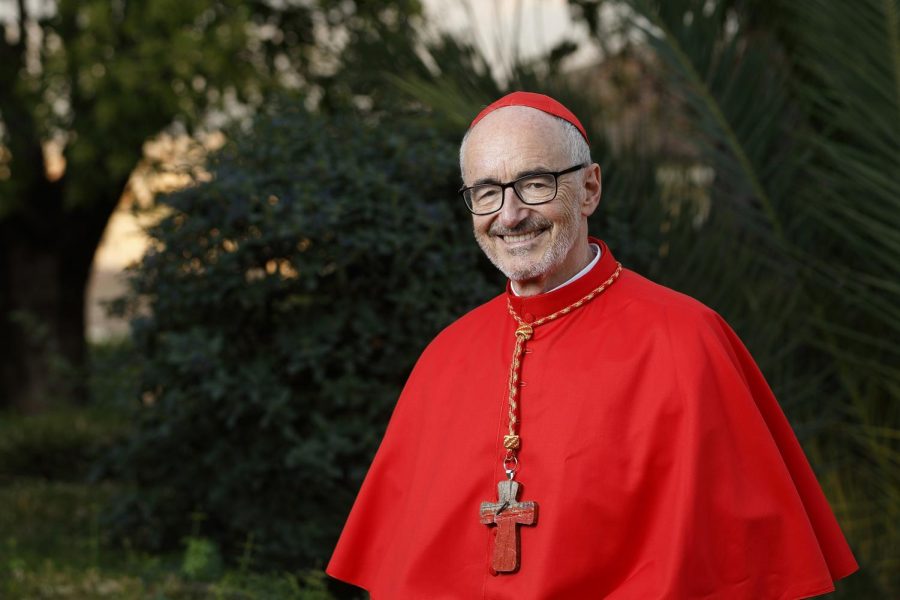OPINION: Caring for Our Common Home, in This World and with This Climate
The presentation is to students of Gonzaga University (GU) in Washington State where the speaker, Card. Michael Czerny S.J., was a student for two years and earned his A.B. in 1968. The topic is “GU’s Challenge: Caring for Our Common Home, in This World and with This Climate.”
Although words like “ecology” and “environment” were decades away from everyday use, some undergraduate courses in the late 60s did provide hints and tools for addressing today’s predicaments. And napalm bombing in Vietnam harshly demonstrated the link between natural and human environments. Since that period, the world seems to have become a lot smaller, more fragmented and yet more interconnected. Moreover, the perils facing nature and human society are now beyond debate; the problem today isn’t ignorance but indifference and despair.
In response, the speaker recommends a reading program and a call to action.
The reading list is Pope Francis’s encyclicals Laudato si’ (LS) and Fratelli tutti (FT). Both are addressed to everyone, not just to the Catholic world as was traditional, but to “every person living on this planet” in order “to enter into dialogue with all people about our common home” (LS 4). The two documents complement each other: LS is about what needs doing and FT is about who’s to do it.
Laudato si’ begins with a detailed, sobering account of the physical and moral state of the world. Our common home, says Pope Francis, is crumbling around us. This is due to choices that humans make. The result is not only biodiversity loss and rising rates and severity of environmental disasters; in addition, great numbers of people are displaced and must relocate in order to survive. Many more continue to experience a marginalized existence. Thus LS is a social encyclical as well as a “green” document; it mentions “the poor” four times more often than “climate”.
LS reminds us that the earth is our common home and shared inheritance. This raises the inescapable question of eco-justice, namely, a concern for the poor and vulnerable members of our common household right now, “whose life on this earth is brief and who cannot keep on waiting” (LS 162). We need to hear more about eco-justice in our universities.
“We are all connected” is a theme that Pope Francis repeats throughout LS and carries into FT. We are interconnected with the created world and with everyone throughout the human family. We must embrace the reality that all of us are created as siblings who need to survive and flourish as one human family.
Fratelli tutti focuses on “fraternity and social friendship”. The two key messages are the call to solidarity and the invitation to dialogue. Solidarity is both intragenerational (among everyone on the planet at the same time) and intergenerational (between current and future generations). The beating heart of FT is the Good Samaritan story: here Jesus teaches us that being like ourselves in origin, race, language, religion, orientation, political affiliation are all irrelevant when asking who is my neighbor, who is my sibling, whom should I love.
Dialogue is the necessary approach to seeking a common path for the human family. This is something absolutely vital for universities to promote, especially in a country like the United States where the Church as well as society in general have become so polarized.
An effective antidote to indifference and despair is to invest our time, talents and energy in compassion, solidarity, charity and the preferential option for the poor. These are the best ways of seeking the common good, actively restoring us as siblings, and rebuilding our common home.
In order to convert Pope Francis’s two great encyclicals into action, it helps to ask the question: “Where am I, where are we – different members of the Gonzaga family and other Washington State universities too – in all this?”
The Church seeks to inspire concrete action in the fight against the climate breakdown and attendant social ills, both locally and globally. Concrete, visionary, and courageous responses are needed to the invitation of Pope Francis to undergo an “ecological conversion,” to live in better harmony with God, with one another, and with all of God’s creation. That commitment was made by many universities, including Gonzaga, soon after LS appeared, in a “Statement of Leaders in Catholic Higher Education Globally.”
One way of turning the encyclicals and the university statement into action is the ambitious Laudato si’ Action Platform [LSAP] that Pope Francis launched in May 2021 on the fifth anniversary of the encyclical.
The ever-growing LSAP already counts well over a thousand educational institutions, including Gonzaga, one of the first universities to sign on. LSAP asks every member university to align its mission, vision and guiding principles with the values promoted by LS, and to become active in a worldwide community of committed action.
In addition, LSAP-aligned universities are encouraged to complete a baseline assessment of sustainability practices, including around energy and water, and to develop curriculum to include integral ecology in their courses, community service, cultural and spiritual formation.
The Action Platform highlights partnerships at various levels and seeks to generate “a people’s movement” – an alliance across churches, faith communities, educational institutions, NGOs and governments – to care for our common home. This echoes the important lesson, hopefully learned from the Covid-19 pandemic, that “No one can be saved alone.” Further, like combatting Covid-19 together, combatting climate change together requires embarking together on paths of peace.
Developing bonds of cooperation and embracing the weakest amongst us are required to respond sustainably to the challenges of today and tomorrow. This couldn’t be truer regarding the climate crisis and care for our common home. May we believe with Pope Francis that “all of us can cooperate as instruments of God for the care of creation, each according to his or her own culture, experience, involvements and talents” (LS 14).






